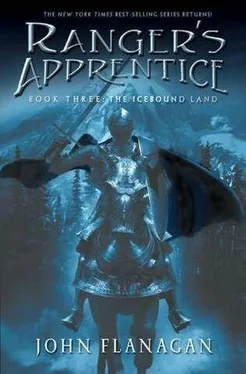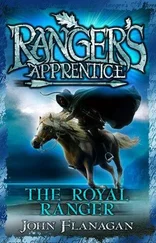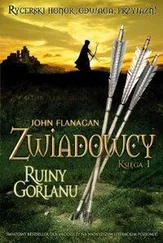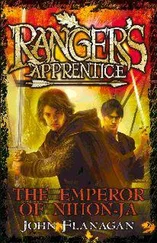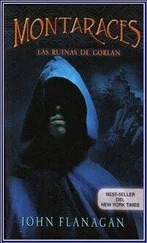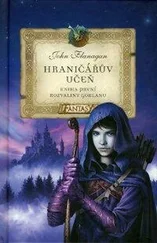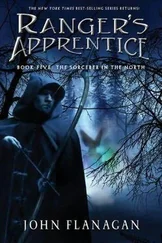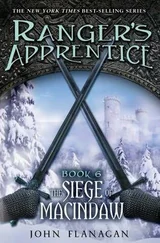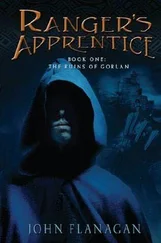John Flanagan - The Icebound Land
Здесь есть возможность читать онлайн «John Flanagan - The Icebound Land» весь текст электронной книги совершенно бесплатно (целиком полную версию без сокращений). В некоторых случаях можно слушать аудио, скачать через торрент в формате fb2 и присутствует краткое содержание. Жанр: Фэнтези, на английском языке. Описание произведения, (предисловие) а так же отзывы посетителей доступны на портале библиотеки ЛибКат.
- Название:The Icebound Land
- Автор:
- Жанр:
- Год:неизвестен
- ISBN:нет данных
- Рейтинг книги:4 / 5. Голосов: 1
-
Избранное:Добавить в избранное
- Отзывы:
-
Ваша оценка:
- 80
- 1
- 2
- 3
- 4
- 5
The Icebound Land: краткое содержание, описание и аннотация
Предлагаем к чтению аннотацию, описание, краткое содержание или предисловие (зависит от того, что написал сам автор книги «The Icebound Land»). Если вы не нашли необходимую информацию о книге — напишите в комментариях, мы постараемся отыскать её.
The Icebound Land — читать онлайн бесплатно полную книгу (весь текст) целиком
Ниже представлен текст книги, разбитый по страницам. Система сохранения места последней прочитанной страницы, позволяет с удобством читать онлайн бесплатно книгу «The Icebound Land», без необходимости каждый раз заново искать на чём Вы остановились. Поставьте закладку, и сможете в любой момент перейти на страницу, на которой закончили чтение.
Интервал:
Закладка:
As the plan came to him, he tossed the long, unwieldy lance to the ground, reached around and broke the arrow shaft off close to his shoulder, and tossed it after the lance. Then, drawing his broadsword, he began to trot slowly to where Halt stood, waiting for him.
He kept Halt to his left so that the shield would be in position to deflect his arrows. The long sword in his right hand swung easily in circles as he felt its familiar weight and perfect balance.
Watching, Horace felt his heart thud faster in his chest. There could be only one end to the contest now. Once Deparnieux had abandoned the headlong charge for a more deliberate approach, Halt was in serious trouble. Horace knew that nine out of ten knights would have continued to charge, outraged by Halt's tactics and determined to crush him with their superior force. Deparnieux, he could see now, was the one in ten who would quickly see the folly in that course, and find a tactic to nullify Halt's biggest advantage.
The mounted knight was only forty meters away from the small figure now, moving slowly toward him. As before, the bow came up and the arrow was on its way. Deftly, almost contemptuously, Deparnieux flicked his shield up to deflect the arrow. This time, he heard the ringing screech of its impact and lowered the shield again. He could see the next arrow, already aimed at his head. He saw the archer's hand begin the release and again brought the shield up as the arrow leaped toward him.
But there was one important item he didn't see.
This arrow was one of the three that Halt had placed in the cuff of his boot. And this arrow was different, with a much heavier head, made from heat-hardened steel. Unlike the normal war arrows in Halt's quiver, it was not a leaf-shaped broadhead. Rather, it was shaped like the point of a cold chisel, surrounded by four small spurs that would stop it from deflecting off Deparnieux's plate armor and allow it to punch through into the flesh behind.
It was an arrowhead designed to pierce armor and Halt had learned its secrets years before, from the fierce mounted archers of the eastern steppes.
The arrow flew from the bow. As Deparnieux raised his shield, he never saw the extra weight of the head already causing it to drop below its point of aim. The arrow arced in underneath the slanted shield and punched into the breastplate exposed there, with barely a check to its speed and force.
Deparnieux heard it. A dull impact of metal on metal-more a metallic thud than a ringing tone. He wondered what it was. Then he felt a small core of intense pain, a bright flare of agony, that began in his left side and expanded rapidly until it engulfed his entire body.
He never felt the impact as his body hit the grassy field.
Halt lowered the bow. He eased the string and replaced the second armor-piercing arrow, already nocked and ready, back in his quiver.
The lord of Chateau Montsombre lay unmoving. A stunned silence hung over the small crowd of onlookers who had come out of the castle to watch the combat. None of them knew how to react. None of them had expected this result. The servants, cooks and stable hands felt a cautious sense of pleasure. Deparnieux had never been a popular master. His use of the lash and the iron cages on any servant who displeased him had seen to that. But their expectations of the man who had just killed him were not necessarily any higher. Logically, they assumed that the bearded stranger had killed their master so that he could take control of Montsombre. That was the way of things here in Gallica and former experience had shown them that a change in master brought no improvement to their lot. Deparnieux himself had defeated a former tyrant some years back. So, while they felt satisfaction to see the sadistic and pitiless black knight dead, they viewed his successor with no great sense of optimism.
For the men-at-arms who had served under Deparnieux, it was a slightly different matter. They, at least, felt a closer bond to the dead man, although to class that feeling as loyalty would be overstating matters. But he had led them to many victories and a considerable amount of booty over the years, so now three of them started toward Halt, their hands dropping to their sword hilts.
Seeing the movement, Horace spurred Kicker forward to come between them and the gray-cloaked archer. There was a ringing hiss of steel on leather as his sword came free of the scabbard, catching the early-afternoon sun on its blade as it did so. The soldiers hesitated.
They knew of Horace's reputation and none of them fancied himself swordsman enough to contest matters with the younger man. Their normal battleground was the confusion of a pitched battle, not the cold, calculating atmosphere of a dueling ground such as this.
"Get the horse," Halt called to Horace. The apprentice glanced around in surprise. Halt hadn't moved. He stood, feet slightly apart, side on to the approaching soldiers. Once again, an arrow was nocked to his bowstring, although the bow remained lowered.
"What?" Horace asked, puzzled, and the Ranger jerked his head at the warlord's battlehorse, shifting its weight from foot to foot, tossing its head uncertainly.
"The horse. It's mine now. Get it for me," Halt repeated, and Horace trotted Kicker slowly to a point where he could lean down and gather the black horse's reins. He had to resheathe his sword to do so and he glanced warily at the three soldiers-and the dozen others who stood behind them, as yet uncommitted one way or the other.
"Captain of the guard!" Halt called. "Where are you?"
A stockily built man in half armor took a pace forward from the larger group of warriors.
Halt looked at him a moment, then called again: "Your name?"
The captain hesitated. In the normal course of events, he knew, the victor of such a combat would simply demand a continuation of the status quo, and life at Montsombre would go on, relatively unchanged.
But the captain also knew that, often as not, a new commander could choose to demote or even eliminate the ranking officers from the previous regime. He was wary of the bow in the stranger's hands. But he saw no point in not making himself known. The others would be quick to isolate him if it meant possible advancement for them. He came to a decision.
"Philemon, my lord," he said. Halt's eyes bored into him and there was a long, uncomfortable silence.
"Step over here, Philemon," Halt said finally, and replacing the arrow in his quiver, he slung the longbow over his left shoulder. That gesture was encouraging for the captain, although he had no doubt that, if Halt wished, he could unsling the bow and have several arrows on the way in less time than he, Philemon, could blink. Cautiously, every nerve end tingling with anticipation, he moved closer to the small man. When he was within easy talking distance, Halt spoke.
"I have no wish to stay here any longer than I need," he said quietly. "In a month, the passes into Teutlandt and Skandia will be open and my companion and I will be on our way."
He paused and Philemon frowned, trying to understand what he was being told.
"You want us to come with you?" he asked, at last. "You expect us to follow you?"
Halt shook his head. "I have no wish to ever see any of you again," he said flatly. "I want nothing of this castle, nothing of its people. I will take Deparnieux's battlehorse, because I am entitled to it as the victor in this combat. As for the rest, you're welcome to it: castle, furnishings, booty, food, the lot. If you can keep it from your friends, it's yours."
Philemon shook his head in disbelief. This was phenomenal luck!
The stranger was moving on, and handing over the castle, lock, stock and barrel, to him-a mere captain of the guard. He whistled softly to himself. He would replace Deparnieux as the controller of this region.
Читать дальшеИнтервал:
Закладка:
Похожие книги на «The Icebound Land»
Представляем Вашему вниманию похожие книги на «The Icebound Land» списком для выбора. Мы отобрали схожую по названию и смыслу литературу в надежде предоставить читателям больше вариантов отыскать новые, интересные, ещё непрочитанные произведения.
Обсуждение, отзывы о книге «The Icebound Land» и просто собственные мнения читателей. Оставьте ваши комментарии, напишите, что Вы думаете о произведении, его смысле или главных героях. Укажите что конкретно понравилось, а что нет, и почему Вы так считаете.
